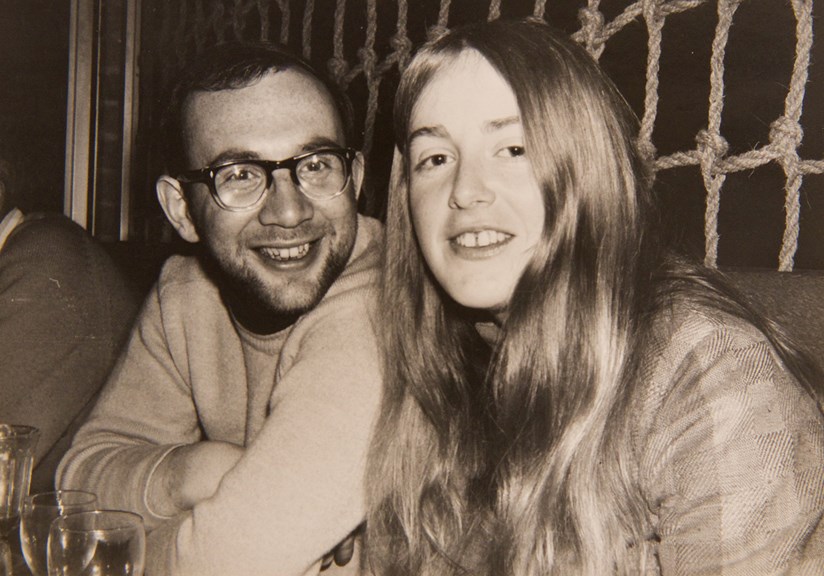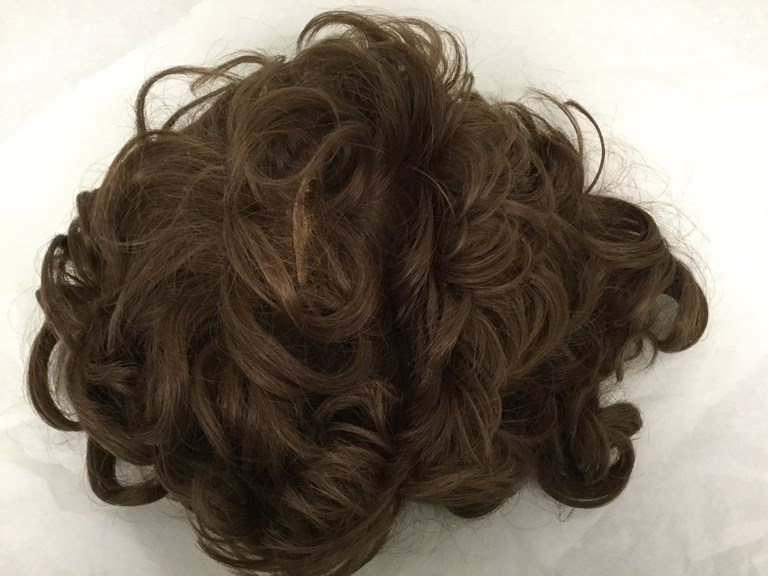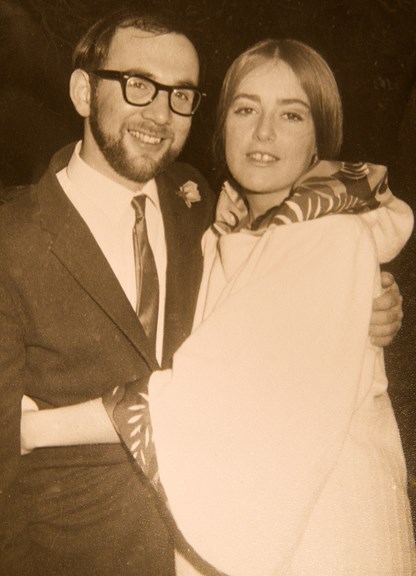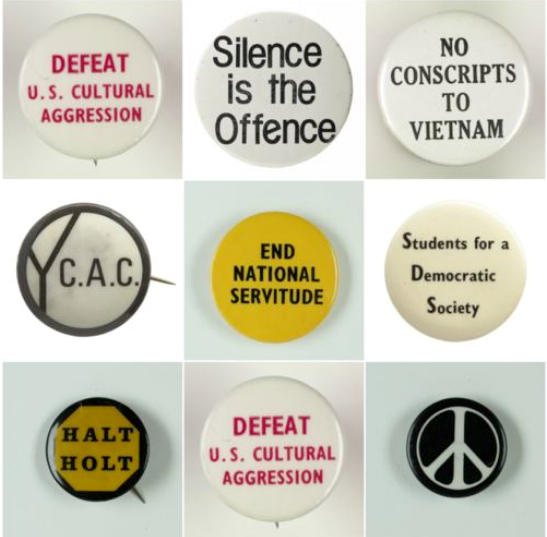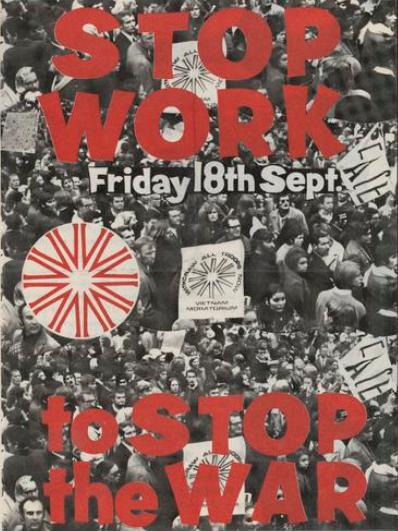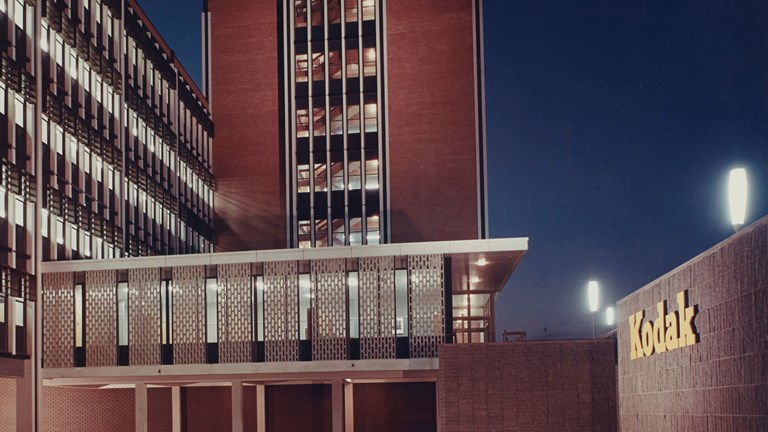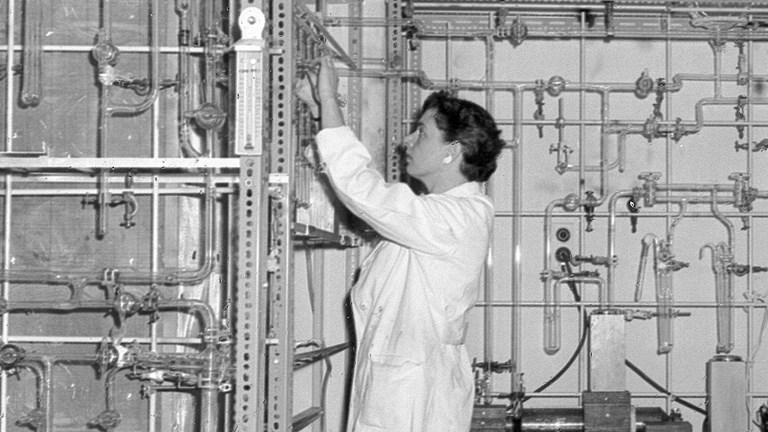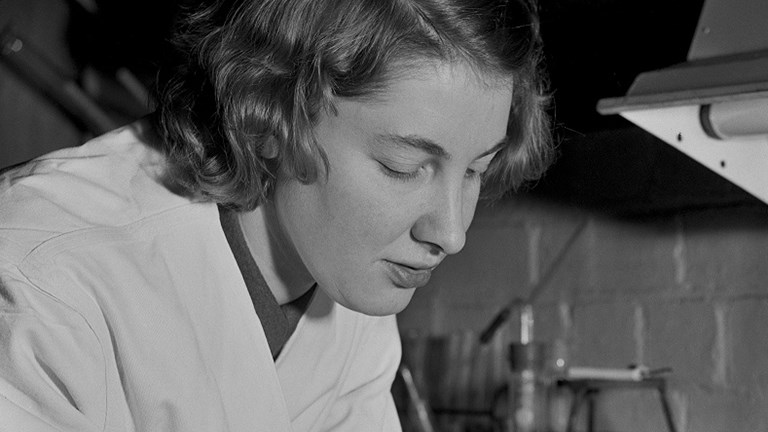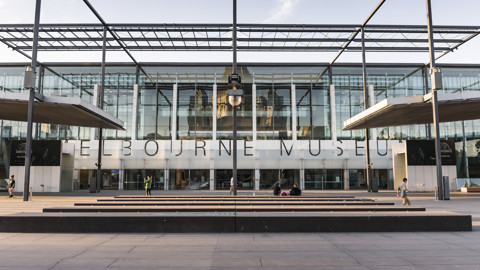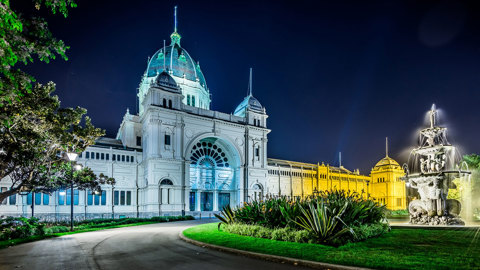An underground affair
On the run from the law, Michael and Frances decide to marry.
Michael and Frances were newlyweds with a secret.
It was the late 1960s, heady days for the Melbourne university students.
Their secret forced the couple to live apart and steal visits to one another in disguise.
Frances Newell would ditch her customary duffel coat and desert boots and hide blonde locks beneath a jaunty chestnut wig, brand name: ‘La Rocca’. High heels and a miniskirt completed the costume.
For Michael, a John Lennon-style wig was radical change enough for a man balding from his early 20s.
Frances was a Quaker. By day she worked for an aid organisation based at the Prahran Methodist Mission. One day, the office receptionist rang on the internal phone.
‘Fran, I don’t know if this will be of any interest to you,’ the receptionist said.
‘But the Commonwealth Police have just been in the foyer, asking the cleaner about you.
‘And if you look out your window now, you can probably see them behind the curtains in the Chinese café across the street.’
Their secret was Michael's location—he was 'underground', hidden from the law in a network of safe houses. A jail sentence loomed. His alleged crime? Refusing to fight a war on foreign soil that he deemed immoral: Vietnam.
Michael was a draft resister. He and Fran, anti-war activists on the lam.
Their sedition brought them together. The threat of prison prompted the lovers to exchange vows.
'You know, if we got married, we might have conjugal visits,’ Michael said to Frances one day.
Fifty years later, at their home in Coburg, the couple laugh at his cheeky proposal. In 2020, they can afford to.
Both did indeed serve jail time. Several times. But their imprisonment lasted days, not years. In the end, they were locked up for lesser ‘crimes’ like refusing fines issued for their roles in anti-war civil disobedience protests.
Today marks a landmark moment in Australian history, the 50th #anniversary of the first #Vietnam moratorium demonstrations. Follow the story of a couple with a secret to be told in an upcoming exhibition at @immigration_mv here: https://t.co/QVaOaZ7uUm#MuseumAtHome pic.twitter.com/faXFhDtLcK
— Museums Victoria (@museumsvictoria) May 8, 2020
Still, Frances recalls prison as an experience which rendered her powerless and humiliated. Those years were a certainly a roller coaster of emotions for Michael and Frances.
For Michael, a newly emigrated ‘10 Pound Pom’, it began in 1965 with the shock of being called up in the first conscription ballot at the age of 20.
Then the horror of learning about the slaughter of Vietnamese civilians in a war that had already raged for a decade and would decimate the country for another.
The solidarity of meeting like-minded students who would act upon their convictions.
Belief that the opposition Labor Party would abolish conscription and withdraw troops from Vietnam if it won the 1966 election.
Hope that, when informed, the Australian public would vote Labor.
Despair, when Prime Minister Harold Holt won the ‘66 election with an increased majority and a mandate for war.
Reinvigoration in ‘68, when mass anti-war movements swept the United States and France.
Vindication in ‘69 when opinion polls began to show public support for the war evaporating.
Elation in 1970, when they joined more than 70,000 people who swept through the streets of Melbourne in protest.
Defiance that drove Michael underground in '71.
Then, finally, sweet relief in December ‘72 when Gough Whitlam led Labor to power, abolished conscription, freed the seven conscientious objectors still imprisoned and absolved thousands of other anti-war activists like Michael and Frances from persecution.
The war itself would rage for nearly two-and-a-half years more. But for Mike and Fran the roller coaster had come to an end.
It was a journey, though, that would colour the rest of their lives together.
‘Participating in the Vietnam War movement left me permanently with a sense of the possibility for change,’ Frances said.
‘And the power of non-violent resistance to change the tide of public opinion.’
Michael would go on to become a professor at Victoria University, researching peace. A set of his badges and leaflets from his days as a student activist is held by Museums Victoria.
And 'La Rocca?' That bouncy chestnut wig best worn atop a mini-skirt? It too has found a home in the museum's vaults.
With the wig, the story of love and struggle it represents is preserved for future generations.
Interview of Frances Newell and Michael Hamel-Green by Moya McFadzean and Zoe Meagher of Museums Victoria in January 2020.
Read more about anti-Vietnam war protest badges held by Museums Victoria.
